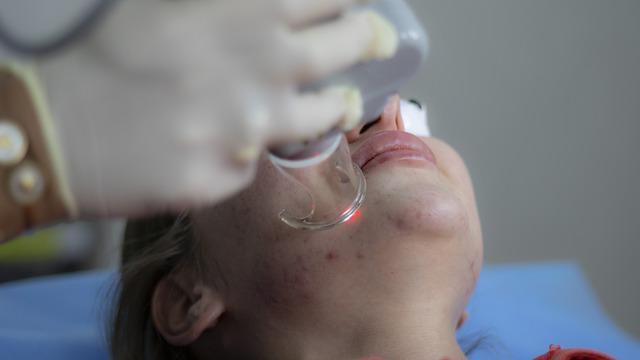Here's a quick way to find out the different types of acne scarring
Acne scars are one of the major misfortunes for many people, young and old. They are basically visible marks, gaps, or lumps on the surface of the skin caused by scar tissue that formed as part of the healing process where acne has previously destroyed the original skin or hair follicles. Acne scarring is observed in various forms.
Three of them are the main types of acne scars:
- Ice picking pore scars.
- acne scars
- and prominent scars. It is interesting to know primarily that this classification was discovered through the development of the acne scar classification system that helps medical professionals diagnose and treat a number of acne scars.
The first type of acne scars, ice piercing pore scars are large, deep scars with open, detectable pores that generally look as if the skin has been stabbed with a thin, sharp object such as an ice pick. This type of acne scar is usually caused by a deep pimple or cyst that has damaged hair follicles as the infection has moved to the skin's crust.
The second type of acne scars, acne scars, has a slightly sunken or depressed appearance on the skin. This type of acne scarring is primarily caused by pimples or cysts that have destroyed the skin and formed scar tissue.
The third classification of acne scarring, known as raised scars, is caused by a number of large cysts clumping together. When cysts clump together, scar tissue forms which can create a lump of raised tissue on the surface of the skin, thus known as raised scars. Acne scarring can be prevented.
One of the key steps to preventing acne scars is
- Simply not picking the pimples and pinching and squeezing them.
- Besides, there are many techniques that can help you reduce the visible signs of acne scarring. There are glycolic peels and special creams on the market today that can help soften scar tissue and enhance skin texture. Apart from that, acne scars can be prevented or eliminated with some effective options
- Such as dermabrasion, laser peeling, or collagen injections.
- There are some vitamins and minerals that can also help reduce acne scars such as vitamins A and E as well as zinc.
Laser treatment:
Laser therapy can also be used to combat acne scars. Excisional laser therapy, for example, burns scar tissue from the surface of the skin, stimulating the underlying skin to tighten. This technique injures the skin and exposes the underlying tissue, so that people undergoing ablative laser treatment must also be protected from infection. Furthermore, because laser treatment can be painful, doctors apply anesthesia to the skin before performing any laser procedure.
On the other hand, non-ablative laser treatment can cause changes in the underlying skin tissue without causing injury to the epidermis or the surface of the skin. This laser treatment is considered relatively fast: this time it heats up the sebaceous glands of the skin, which prevents the formation of acne; It also tightens the skin underneath, so the scars are less visible. Another type of laser treatment uses a yellow pulse dye laser, a machine that works using yellow light. Yellow light treats keloids, and can flatten or reduce inflammation of raised scars.
Fat transplantation:
There are other skin care options for acne scars. A dermatologist may offer to inject the scar or fill it with fillers such as bovine collagen. Fat can also be transplanted from other parts of the patient's body and into the acne scar. Some dermatologists may also recommend creams or lotions that can temporarily plump the skin and remove any signs of wrinkles, acne scar reduction, or age lines. There are also excision and incision techniques that can be performed on irregular acne scars.
There are still many ways to care for acne scar skin. If you have acne scars, see a dermatologist first and talk about options for your condition. With proper acne scar skin care, you can have smoother, fresher skin in no time at all.
So if you are having problems with acne scars, don't let acne scars rule your life. Apply those methods mentioned or consult your doctor first before choosing a particular method.
That's it for today. If you feel there is something useful, please share this with your loved ones, and don't forget to reveal your thoughts in the comment box. Or if you have any great ideas or any questions, don't forget to share them by commenting. Until then, be happy, keep smiling, keep asking questions, and please keep reading my articles. See you in the next article.

Comments
Post a Comment